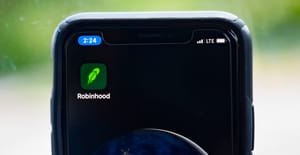What to do With Your Dormant Health Savings AccountWhat to do With Your Dormant Health Savings Account
At least 24 percent of Americans with HSAs leave them inactive.
April 5, 2017

By Beth Pinsker
NEW YORK, April 5 (Reuters) - A Health Savings Account issupposed to stay with you for life, but if you do not use it,you could lose actually lose it.
HSAs are intended to make medical expenses more affordableby allowing consumers with high-deductible health plans to setaside pretax money in an account that, unlike a FlexibleSpending Account, will not expire at the end of the year.
You can keep these accounts as you change jobs, which allowsyou to build up funds that you can spend as you need to or savefor retirement.
But at least 24 percent of the 20 million-plus Americanswith these accounts leave them inactive, according to researchfirm Devenir.
Some may not have enough extra cash to deposit. Somecurrently may not be eligible to put in money because they havechanged health plans. Some may have simply have forgotten theyopened the accounts in the first place.
When an HSA account sits for too long with no activity, thebank holding it has several options, one of which is to turn themoney over to the state as unclaimed funds.
Before that happens, however, you will probably get a verysternly worded letter filled with arcane terminology about stateescheatment law.
In escheatment, the state takes control of unclaimed assets,including bank accounts abandoned by people who cannot bereached because they have moved or died, settlement funds fromlawsuits, or other awards that were never claimed. Severalwebsites, like unclaimed.org, allow you to check by state to seeif there are registered funds in your name.
Because Health Savings Accounts are often held by banks orcredit unions that treat them as regular checking accounts,rather than as retirement investment accounts like an IRA, theycan fall under escheatment law, depending on the state.
"If the account is in checking, it might be one set of staterules; if it's in a brokerage, it might be different rules,"said Steve Christenson, executive vice president of retirementand savings plan provider Ascensus.
Christenson himself has four separate HSA accounts. While hestays on top of them, he can understand how employees whohopscotch employers and providers can lose track.
Here is what to do if you have a dormant HSA account:
* Tell the bank that you want to keep the account
The average HSA balance is $1,844, according to the EmployeeBenefit Research Institute.
There is a benefit to keeping the account open, even with azero or low balance, said HSA Consulting Services President RoyRamthun. Even if you cannot contribute right now, you may beable to do so in the future.
Internal Revenue Service rules start the clock on eligibleexpenses when you open the HSA account, not when you put inmoney. So you could keep your receipts for medical costs now andreimburse yourself whenever you can make deposits.
* Compound the interest
Most people keep their HSA money in cash via a checking-typeaccount, but if you have any significant balance at all, you caninvest the money and let the magic of compounding work for you.Ten years from now, your $1,000 could be worth $1,790 if you putit in an index fund that earns 6 percent, and that gain would betax-free.
"We want it to be a longer-term vehicle, so removing theaccount is counter to that," said Eric Dowley, senior vicepresident of Fidelity's HSA division.
Fidelity generally treats HSAs like it does IRAs and doesnot seek to close low-balance accounts, he added.
* Move the account to a friendlier bank
If you got one of those scary letters saying your HSA wasabout to be seized and your financial institution does not seemhappy about keeping a dormant account, shop around and pay closeattention to fees.
* Spend the money
If you close your HSA and withdraw the funds that are left,you will have to pay taxes and fees that could eat up your wholebalance.
Instead, you could just spend the money on qualifiedexpenses like contact lenses or prescriptions, and then closethe emptied account.(Editing by Lauren Young and Lisa Von Ahn)
You May Also Like





